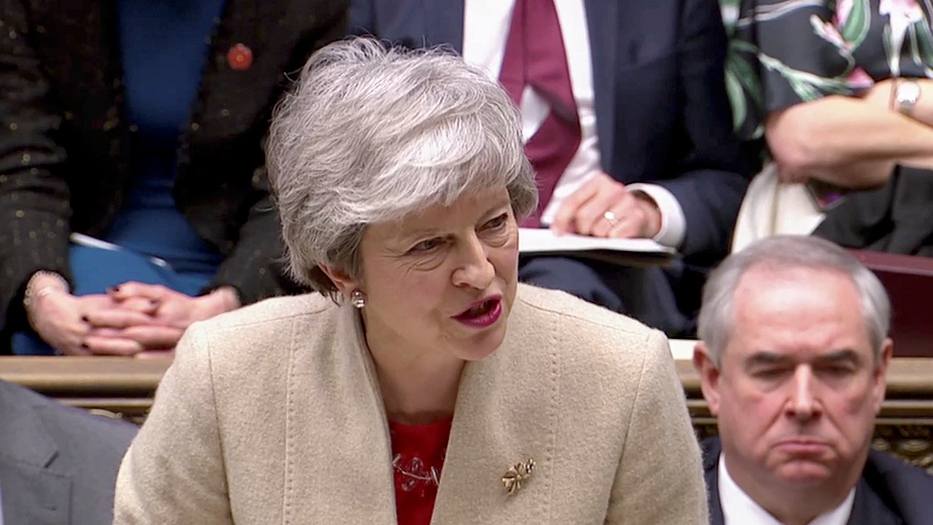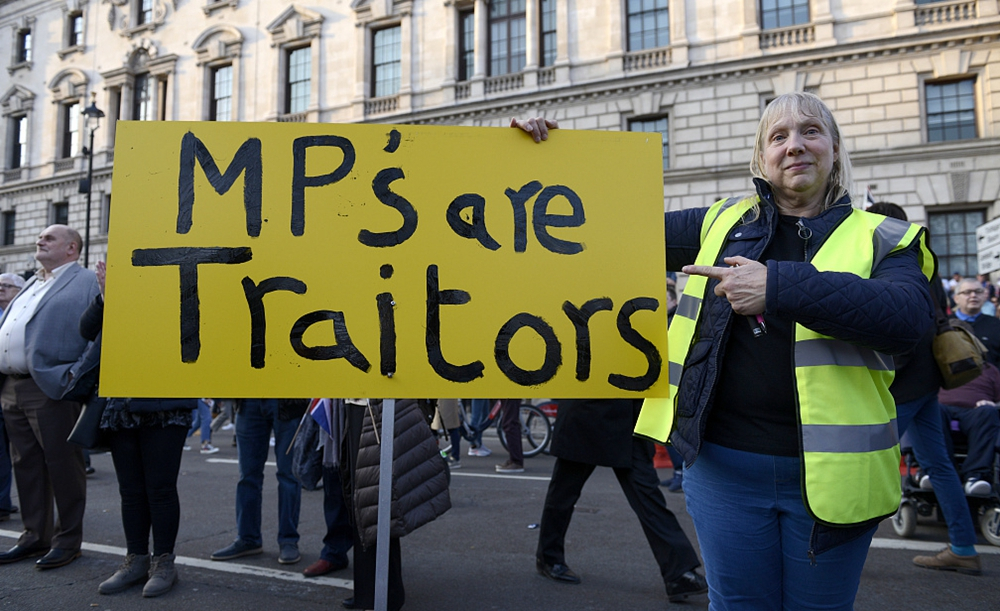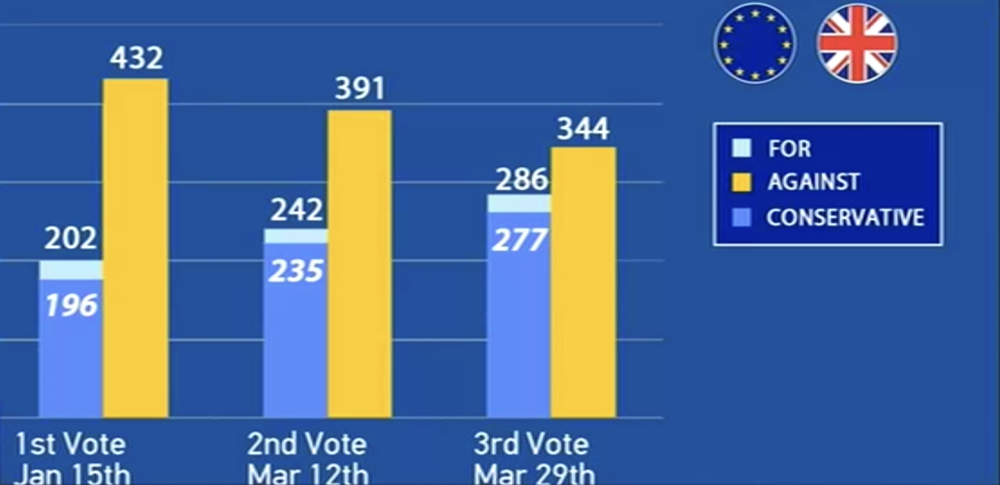
Europe
16:00, 31-Mar-2019
Brexit deadlock: Any way out for Theresa May?
Wang Yushen
02:10

For UK Prime Minister Theresa May, Brexit marathon has been exhausting. The journey so far has seen one disappointment after another, and many say it also marks May's possible political death.
So is there a way out? And will a fourth vote bring real changes?
March 29, the date that May and many Brexit supporters had desperately waited for, has come and gone, and Britain remains in the EU.
May has tried very possible trick in the book, from conducting three votes to offering dozens of alternatives and even offering to resign if MPs passed her withdrawal agreement.
The government has so far failed to win over 34 Conservative rebels, including both "Remainers" as well as "Leavers", who claim that May's plan still leaves the UK too closely aligned with Europe.

A pro-Brexit protester during "Leave Means Leave" rally in London, March 29, 2019. /VCG Photo
A pro-Brexit protester during "Leave Means Leave" rally in London, March 29, 2019. /VCG Photo
Northern Ireland's DUP, which has propped up May's minority government, also continues to oppose the deal.
"Grave implications," that's how May described the impact of her plan's third defeat for the country. The European Commission echoed, calling an economically damaging no-deal split "a likely scenario".
Does that mean there's no way out?
Data from the last three votes may shed some light. Over the course of the three votes, there was a clear trend that more and more of May's fellow party members were getting along.
From 230 in the first vote, to 149 the second time, and only 58 in the third vote, the margins significantly shrunk.
A series of high profile switches of support from Tory rebels in the third vote, including former foreign secretary Boris Johnson, who had quit the government over the deal.

CGTN Photo
CGTN Photo
What will happen next?
On Monday, MPs will hold another set of votes on various Brexit options.
Potentially another round of "indicative votes" will be held on Wednesday.
Two possible options
One, if the UK requests or EU grants further extension, before EU leaders' summit on April 10, then the UK will possibly take part in EU elections. That means Brexit renegotiations and even a second referendum.
Second, if there's no further extension, then April 12 will be the new Brexit date, likely with no deal.
(Video editor: Zhang Jing)

SITEMAP
Copyright © 2018 CGTN. Beijing ICP prepared NO.16065310-3
Copyright © 2018 CGTN. Beijing ICP prepared NO.16065310-3